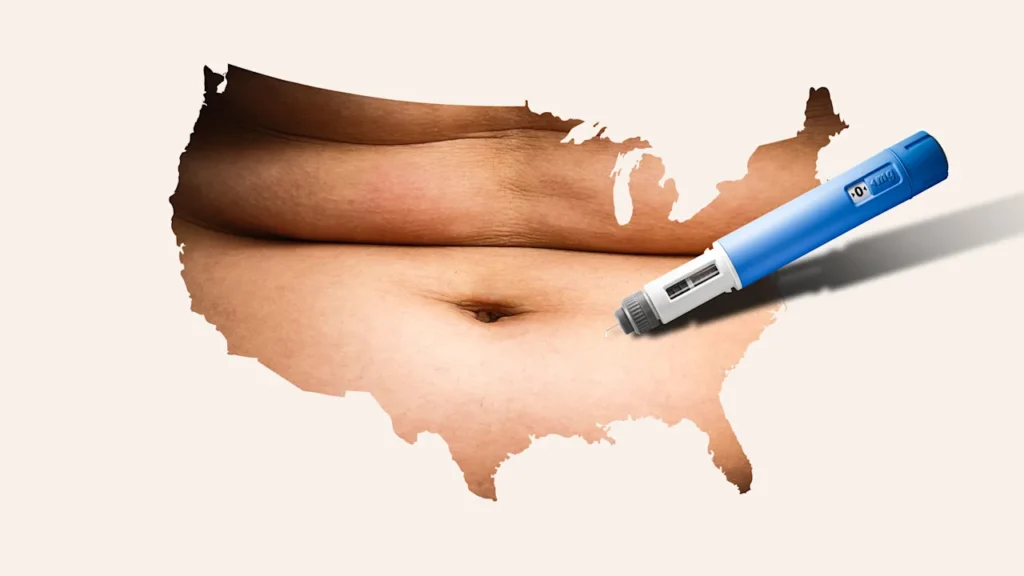
The obesity rate in the U.S. is continuing its downward trend. The news comes three years after obesity rates hit a record high. In 2022, almost four out of 10 (39.9%) of Americans met the threshold for the classification, however, the number first began to shrink in 2023. Now, the rate of obesity is now down to 37%, according to new data from Gallup.
The new findings are based on data from three nationally representative surveys of 16,946 U.S. adults. And while the numbers don’t seem massively significant, the report found that those three percentage points add up to around 7.6 million Americans who no longer meet the criteria for being obese.
According to the newly released data, the numbers coincide with a growing number of Americans who have begun relying on GLP-1 medications, like Ozempic, Wegovy, and Zepbound, for weight loss. “The percentage of adults who report taking this class of medicine specifically for weight loss has increased to 12.4%, compared with 5.8% in February 2024 when Gallup first measured it,” the report explains.
The report also notes that far more women are taking the drugs than men (15.2% and 9.7%, respectively), which helps explain why women’s obesity rates have dropped off more abruptly. Likewise, the largest reduction came from 40 to 49-year-olds and 50 to 64-year-olds, which, uncoincidently, are also the groups who most use GLP-1s for weight loss.
The news comes as reliance on GLP-1s is continuing to surge. On Thursday, Eli Lilly, the maker of weight loss drug Zepbound and diabetes drug Mounjaro, topped estimates for the third quarter, as demand for weight loss drugs continues to escalate. Zepbound posted $3.59 billion in revenue—up a hefty 184% from the year-earlier period. The impressive numbers come shortly after an experimental pill from Eli Lilly outperformed Novo Nordisk’s oral semaglutide. The pill, orforglipron, helped patients lose more weight and control their blood sugar better than Novo Nordisk’s Ozempic, Rybelsus, and Wegovy.
“Lilly delivered another strong quarter, with 54% revenue growth year-over-year driven by continued demand for our incretin portfolio,” David A. Ricks, Lilly chair and CEO, said in an October 30 press release. “We advanced orforglipron through four additional Phase 3 trials, enabling global obesity submissions by year-end, and we achieved U.S. FDA approval of Inluriyo (imlunestrant)—marking key progress across our pipeline.”
And, as the market for weight loss drugs grows, drug companies are battling it out for a competitive edge. On Thursday, Danish pharmaceutical company Novo Nordisk which makes Ozempic and Wegovy, made an aggressive bid on U.S. obesity biotech firm Metsera in an effort to dominate the weight loss drug market. Novo Nordisk bid $8.5 billion, topping Pfizer’s $7.3 billion bid.
Interestingly, while obesity rates have taken a major dive, diabetes diagnoses have actually gone up—reaching a record high of 13.8%, per the recent data. “As diabetes is a lifetime disease, short-term reductions in the obesity rate would not be expected to curtail the percentage of Americans who have been diagnosed with it,” the research explains.
